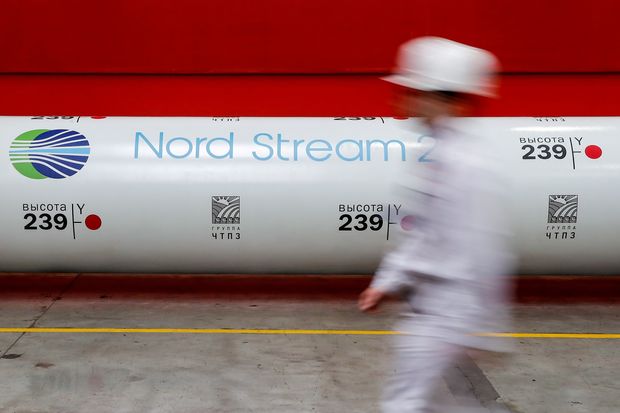The pipeline is one of the last ties of an economically declining Russia to Western Europe and Moscow is much more dependent on these revenues than Europe is on Russian natural gas. Therefore, it must become part of a broader transatlantic strategy which combines shorter-term policy goals to deal with Moscow’s aggressive behavior and a longer-term effort to keep a door open for a more cooperative relationship, writes Nicola De Blasio, Senior Fellow at the Belfer Center (Harvard)
Nord Stream 2 is a pipeline running under the Baltic Sea that, once completed, will deliver up to 55 billion cubic meters of natural gas per year from Russia to Germany. While the project is led by Russian state-owned Gazprom and co-financed by five major European companies (Engie from France, OMV from Austria, Royal Dutch Shell, Uniper and Wintershall from Germany) its political ownership firmly resides in Berlin.
From a US perspective, the pipeline, which circumvents supply lines running through the Ukraine, is perceived as a means for Russia to undermine Kiev and strengthen its grip on European energy markets. The Biden administration, under pressure from Congress, has made clear its opposition to the project on numerous occasions. US Secretary of State Blinken recently warned that “any entity involved in the Nord Stream 2 pipeline risks US sanctions and should immediately abandon work on the pipeline” but also admitted that, in the end, it will be up to those leading the project to complete it.
Truth be told, energy infrastructure projects of this magnitude are always very difficult to stop once sanctioned, but Germany’s commitment to finish the pipeline should not simply be seen as a result of economic considerations or a geopolitical mistake. Even EU governments opposing the project caution against unilateral sanctions on European companies, which could unite Europe against their extra-territorial application and foster resentment at a time when the US itself imports billions of dollars’ worth of oil from Russia every year.
The true underlying challenge that needs to be addressed is that, after four years of President Trump treating the EU as an economic rival and questioning NATO’s value, Europe’s perception of the US has undergone a substantial change. A late 2020 poll commissioned by the European Council on Foreign Relations shows that 53 percent of Europeans agreed that “after voting for Trump in 2016, Americans cannot be trusted.” Majorities in key member states have lost confidence in parts of the American political class and believe that Europe can no longer rely on the US as a steadfast partner.
Many Europeans breathed a sigh of relief when Joe Biden became president-elect in November and hope that the new administration will bring Washington back to “normality.” Yet, there is still concern regarding what the Republican Party will look like in the future and whether this regained “normality” will be acceptable to the American electorate that voted for President Trump.
According to the same poll, Europeans also feel that China will become more powerful than the US within a decade and would rather maintain a neutral stand between the two superpowers. The relationship with China is already a key challenge for the West’s future and it should be a geopolitical imperative to prevent Russia from becoming a satellite of China. Furthermore, as the Biden administration will need to put in place policies to compete more effectively with Beijing, the US must be able to rely on its European allies for support – and not face passive-aggressive bystanders.
Nord Stream is one of the last ties of an economically declining Russia to Western Europe and Moscow is much more dependent on these revenues than Europe is on Russian natural gas. The pipeline must therefore become part of a broader transatlantic strategy which combines shorter-term policy goals to deal with Moscow’s aggressive behavior and a longer-term effort to keep a door open for a more cooperative relationship.
Looking forward, neither the US nor Europe can expect to unilaterally deter and contain antagonistic competitors around the world. The beneficiaries of a continued stalemate would only be those who have reasons to oppose a rekindled partnership between transatlantic democracies. Success is possible but it will require flexibility and a clear understanding of domestic needs on both sides of the Atlantic.








